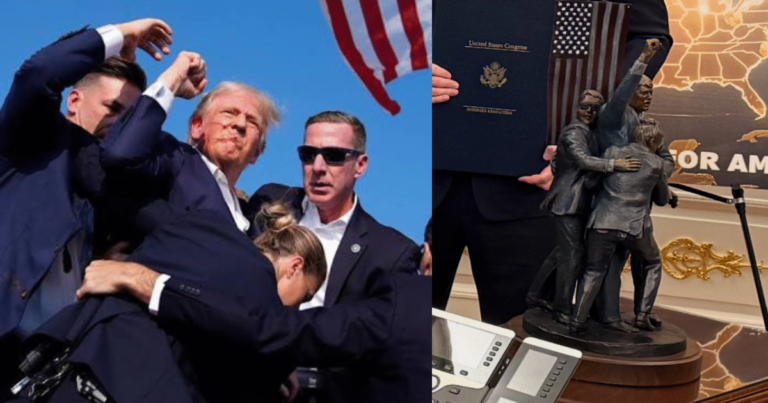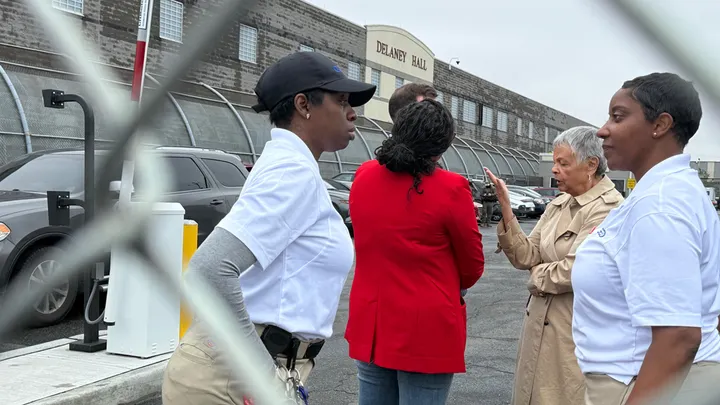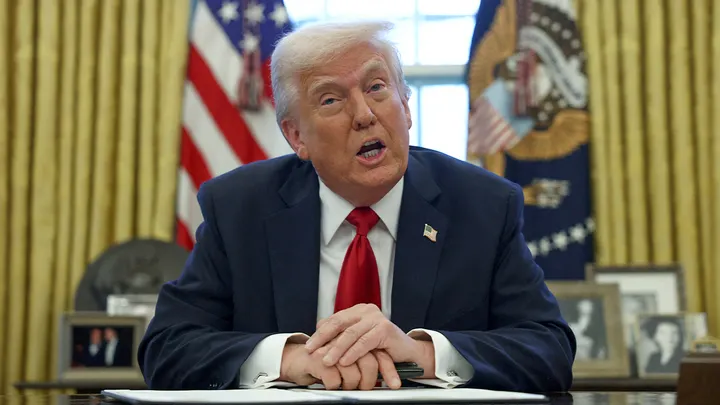New York Judge Juan Merchan on Monday warned former President Donald Trump could be arrested if he disrupts proceedings or skips the trial in his hush money case in Manhattan, as prosecutors claim Trump violated his gag order.

KEY FACTS
Trump, who faces 34 felony charges for allegedly falsifying business documents stemming from hush money payments to former adult film star Stormy Daniels, appeared in the Manhattan court Monday morning for a trial expected to last six weeks, despite Trump’s efforts to delay the proceedings.
Trump attorney Todd Blanche argued on Monday that Trump wants to be present for trial proceedings including sidebar conferences during the trial and voir dire—the initial examination of a witness or a juror.
Merchan, in response, cautioned Trump’s presence could also pose logistical challenges involving the Secret Service, warning that if Trump disrupts the proceedings, he could face jail time, meaning the trial would proceed in his absence.
The warning comes as prosecutors ask Merchan to find Trump in contempt for violating his gag order for criticizing potential witnesses on social media, and as Trump’s bids to delay the proceedings fall flat, including on Monday when Merchan denied Trump’s request for Merchan to recuse himself over claims Merchan is biased against Trump due to his daughter’s job at a marketing firm representing several Democratic candidates.
Merchan then warned the former president that he could also face an arrest warrant if he skips his trial without a reason—a statement given to defendants in New York known as the Parker Warning.
Earlier on Monday, Merchan refused to rule on Trump’s request to skip the trial on Wednesday for his son Barron Trump’s high school graduation, with Merchan saying that decision “really depends on if we are on time and where we are in the trial.”
CHIEF CRITIC
Trump has repeatedly blasted the case as a “witch hunt” and revamped his criticism ahead of jury selection Monday morning, arguing in aTruth Social tirade that the charges against him constitute a violation of New York’s statute of limitations. In that Truth Social post, the former president repeated another argument he has used since his indictment last year, asking why prosecutors waited roughly seven years from his 2016 presidential campaign to bring charges, the time when prosecutors said former Trump attorney Michael Cohen paid Daniels to stay quiet on an alleged affair with Trump. The charges against Trump, however, were filed outside the state’s statute of limitations, following a COVID-19-related extension to the state statute.



